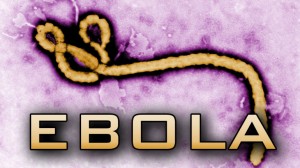Fear makes us do horrible things. It can drive us to ruinous financial decisions and plunge us into addictive behavior. It can make us alienate those we love. And it can drive us to accept government actions that kill our liberties.
Mood Music:
The Patriot Act passed at the height of our hysteria over 9-11. At the time, a lot of us thought we were seeing terrorists holding vials of smallpox and suitcase nukes at every street corner. We were so freaked out over the next potential attack that we gave government the keys to do anything it wanted if it would just keep us safe.
Back then, I was perfectly willing to accept expansion of government power if it meant my friends and loved ones wouldn’t be blown to bits. As government power expanded unchecked, I came to see the folly in my thinking.
Fast-forward to the current pandemic. The federal government and states are imposing lockdowns and social distancing because, we’re told, we must flatten the curve of COVID-19 infections and protect loved ones. I believe that’s true and am doing my part. But I see things that will come back to haunt us — things we must be hyperaware of now because, if we’re not, the government’s reach could grow to totalitarian levels, regardless of whether Democrats or Republicans are in charge.
As we grow increasingly restless and desperate for some return to normal — if that’s even possible — we must view the following as red flags:
From the article:
People must opt in to the system, but it has the potential to monitor about a third of the world’s population.
The technology, known as contact-tracing, is designed to curb the spread of the novel coronavirus by telling users they should quarantine or isolate themselves after contact with an infected individual.
I don’t think contact tracing is a bad idea in itself. Part of why we’re all holed up right now is that testing in the U.S. is way behind where it should be, leaving us with no accurate measurement to see exactly how and where the virus is spreading. If we had that data, we could enact more moderate, commonsense measures to protect the most vulnerable and keep the rest of society functioning. Contact tracing can be a useful measurement.
But if those apps are left running, the government’s ability to see and control our daily lives might become limitless.
Once we enable an app on our devices, it’s very easy to forget it’s there and running.
Meanwhile:
The government is considering immunity cards for people who have recovered from COVID-19.
From the article:
Immunity certificates are already being implemented by researchers in Germany and have been floated by the United Kingdom and Italy, the most recent epicenter of the global outbreak in Europe.
In parts of China, citizens are required to display colored codes on their smartphones indicating their contagion risk. The controversial surveillance measure facilitated earlier this week the end of the lockdown of Wuhan, the city in China’s central province of Hubei where the novel coronavirus first emerged.
I’ll admit that my reaction to this idea might be extreme. On the surface it sounds reasonable: This is another tool that could allow free movement. But it’s a paper-thin surface. It fills my head with visions of Star Wars storm troopers patrolling streets with blaster rifles in hand, randomly demanding passersby show their papers.
A more extreme vision — one I hate to use but can’t dismiss — is that of Jews walking around with stars and other badges during the Nazi era. Suggesting that we’ll reach that point feels like tin-hat theory, but the likelihood is not zero.
I spent years working to overcome the fearfulness that can be a byproduct of OCD, anxiety and depression. Most of the time I do fine, sometimes I fail. Admittedly, in this environment it can be easy to succumb. When a friend first shared the contact-tracing app article on Facebook , my reaction was to comment that it was great news. Not long after that, the second thoughts emerged.
These are scary times indeed. But we must keep our heads screwed on straight and remember what it means to be American. If we give up our rights out of fear, we cease to become the land of the free and become something else.
We shouldn’t push back on the technological tools that can help us get a better handle on the virus. But we must be very, very careful.


